The bell rang, and Ken Spirer opened the door to his West End home as he does whenever the doorbell rings. Only this time, people kept coming – more than 50 in all, and four of them brought their instruments.
Spirer, a longtime supporter of classical music, was hosting a house concert arranged by the Portland Chamber Music Festival. He opened his house to strangers, most of whom paid $70 each for the opportunity to hear chamber music performed as it was written to be performed: among a small gathering of people, in a space so intimate one could hear the musicians breathe between the pulls of their bows.
“The idea of being in close proximity to these world-class musicians is a special experience,” Spirer said.
Concerts like this one are part of a growing national movement that’s bringing classical musicians into private homes, a response to what some people see as the stifling setting of a concert hall, where audience members are expected to dress a certain way, sit quietly and clap only at specific moments. House concerts close the distance between the stage and seats, creating not only proximity between performers and members of the audience, but also a shared a experience that resonates with both.
“People are living their lives differently now than they lived them a generation ago,” said violinist Jennifer Elowitch, co-founder and artistic director of the Portland Chamber Music Festival. “People are looking for authentic experiences, and sometimes those experiences are lacking in a concert hall with several hundred people. Some people just really don’t want to go to a concert hall. With house concerts, we bring the music to them. You can enjoy it in a different way – in the comfort of your home or a friend’s home.”
The November house concert was a first for the Portland Chamber Music Festival, and an experiment. The concert sold out in advance, leading the organization to schedule a second as part of its new Salon Series. It will present a Valentine’s Day concert in a private downtown loft. The group is not alone in its attempt to reach audiences in different ways. This winter, the Oratorio Chorale will host a series of Singer Salons in homes across southern Maine.
WINE AND FOOD ENCOURAGED
House concerts offer the attraction of casual settings, where wine and food are encouraged, and where musicians mingle with the audience before and after the performances – and where it’s OK to respond to the music in whatever way you want.
“There is an etiquette associated with classical music that turns people my generation and younger off,” said Emily Isaacson, the 33-year-old music director of the Oratorio Chorale. “Music is a dialogue. It’s an interactive experience. I have always thought it was a totally appropriate to respond to music with a sigh or a shout or a clap.”
Isaacson has scheduled three Singer Salons through March, one for each remaining month of the winter. They’ll begin at 3:30 on a Saturday afternoon, and be over by 5. These are slightly different in that the audience is expected to participate in the making of music, and they’re free. Isaacson will provide sheet music and an accompanist. Audience members should bring food and drink and a desire to sing.
“When you are sitting next to a piano or sitting in a living room with glass of wine or cookie, it allows for a relaxed environment and intimacy with the art,” she said. “You show up, schmooze, eat and drink then we sing through a piece together. There’s no rehearsal. It’s just for the enjoyment of the music.”
It’s also about building community. We live in a virtual world, where many of our social outlets exist online. House parties offer cultural enrichment and real-world connections, she said.
The casual nature of house concerts, where good music is rewarded with a raised glass in toast or a robust high-five, was part of the reason Sam Bodkin created the social networking site Groupmuse. It’s the Airbnb of classical music, connecting musicians with audiences. Bodkin grew up in Newton, Massachusetts, and went to college in Boston. The 26-year-old began Groupmuse after attending casual house parties among his classical-music friends during his college years.
He is not a musician and had limited exposure to classical music growing up. He had such a rewarding experience listening and watching musicians perform in kitchens and living rooms around Boston, he started Groupmuse as a way to share the experience with others.
Groupmuse now operates in four cities: Boston, New York, San Francisco and Seattle.
Groupmuse attempts to match audiences who are willing to pay for a high-quality concert with musicians who are seeking alternative performance options. Money collected at the concerts goes directly to musicians, who earn up to $500 a night. The organization is searching for a sustainable financial model. It just completed a $140,000 Kickstarter campaign to continue operations through 2016. The goal is self-sufficiency, Bodkin said.
He believes Groupmuse fills a void.
“The opportunities to connect in the real world are not always forthcoming,” Bodkin said in a phone interview from New York, where he now lives. “So many hungers in our society are not being addressed by our cultural institutions. The need for real beauty and depth and connection are not being addressed right now in comprehensive ways.”
Groupmuse has connected with a younger audience than what is often drawn to classical music shows in concert halls. That is in part because of its social-media model and because the entrance fees are donation-only.
The Portland house concerts are aimed at expanding the festival’s audience, too, though the first show did not reach much beyond regular concertgoers. The $70 tickets could be a factor, but the series is just getting stared.
THEY’RE JUST DIFFERENT
The house parties are not intended to replace the concert-hall experiences. They’re just different, Elowitch said. As a musician, she appreciates the immediate feedback of a house-party audience. Just as the audience can see the facial expressions of the musicians or hear them exhale, the musicians pick up on the gasps, smiles and nodded heads of the audience.
The Portland Chamber Music Festival began 25 years ago as a two-weekend festival in August. Five years ago, it expanded to include a concert series at SPACE Gallery in Portland, offering a nightclub setting for classical music throughout the year. The house concerts are the next step in the process of reaching audiences in different ways. The festival will continue to offer concerts in all three settings in hopes of connecting with wider audiences.
In the Spirer home in Portland’s West End, 41 folding chairs were arranged in rows in a large entry hall and living room. Four musicians – including Elowitch and Portland Symphony Orchestra Concertmaster Charles Dimmick – set up their music stands just a few feet from the first row of chairs.
As people arrived, they checked in at a table near the front door, ditched their jackets on a temporary coat rack and mingled for 30 minutes before the music began. Spirer arranged for a neighbor to watch the family dog, Lucy. A caterer spread trays of food and glasses for wine on the large dining room table.
African violets were placed around the home, and candles burned on a living room mantle.
Dimmick, Elowitch and the other musicians moved among the rooms, talking to the guests about the program they were about to perform, music in general and anything else people wanted to discuss.
“This reminds me of the salons they used to have in Europe before we had records or recordings,” said Karen Olson of Portland. “What a wonderful thing to try again.”
A music fan who appreciates performances in all settings, Olson said she was “thrilled” with the idea of hearing music in a room so small. She’s used to hearing Dimmick perform at Merrill Auditorium, with 60 to 80 other musicians on stage and 1,500 or so people in the audience. “It’s a rare thing to have such quality live musicians playing in this kind of setting,” she said.
As the musicians tuned their instruments, people sat in the folding chairs, on the stairs leading to the second floor and on a family sofa in the living room. Some stood in the back.
“Tonight, we’re going to hear music as it was meant to be heard — in an intimate space among friends and family,” Frank Douglass, president of the chamber fest board, said as he introduced the concert.
Elowitch, who grew up in Portland, said the concert was about community. As founder of the festival and a longtime musician in Portland and Boston, she’s performed for thousands of people over the years. Rarely, she said, does she get the chance to know the audience as directly as she hoped to on this night. “I want to talk to you, and I want to get to know you,” she told the audience. “I think it’s important not to separate the audience from the musicians. We can talk to you. But tonight, I want you to talk to us.”
The musicians played for about an hour. When it was over, they put their instruments in their cases and resumed the conversation among friends.
Copy the Story LinkSend questions/comments to the editors.


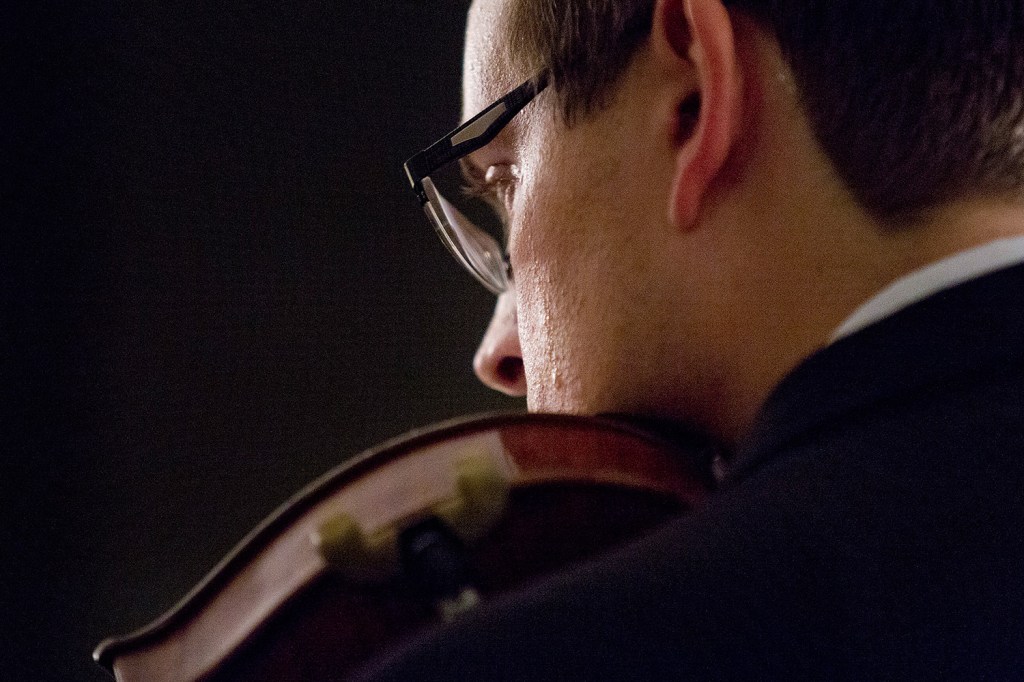
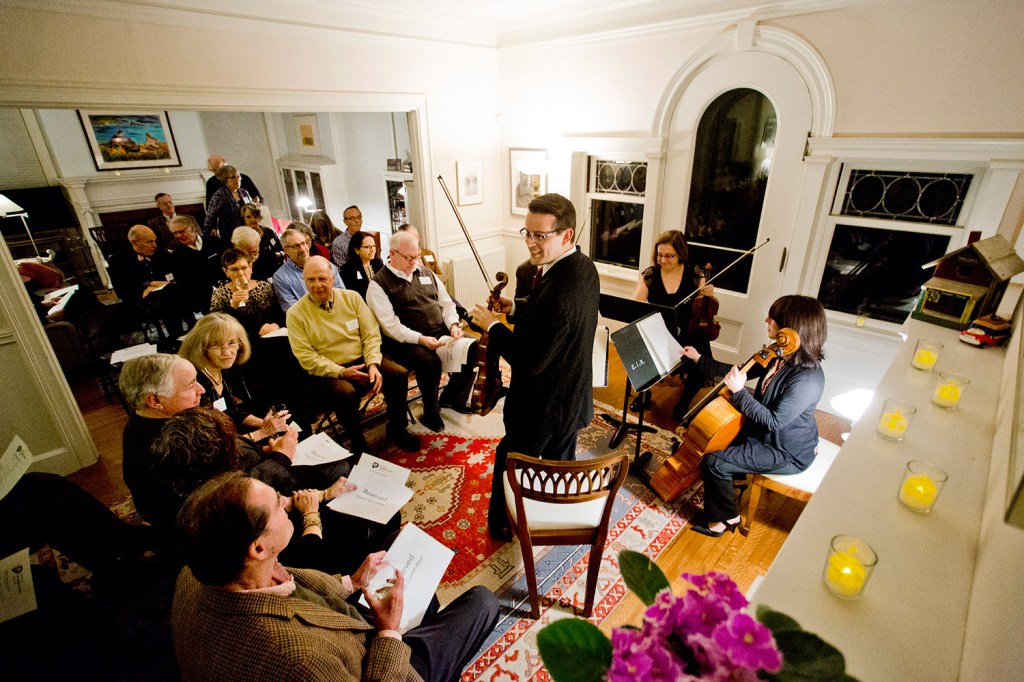
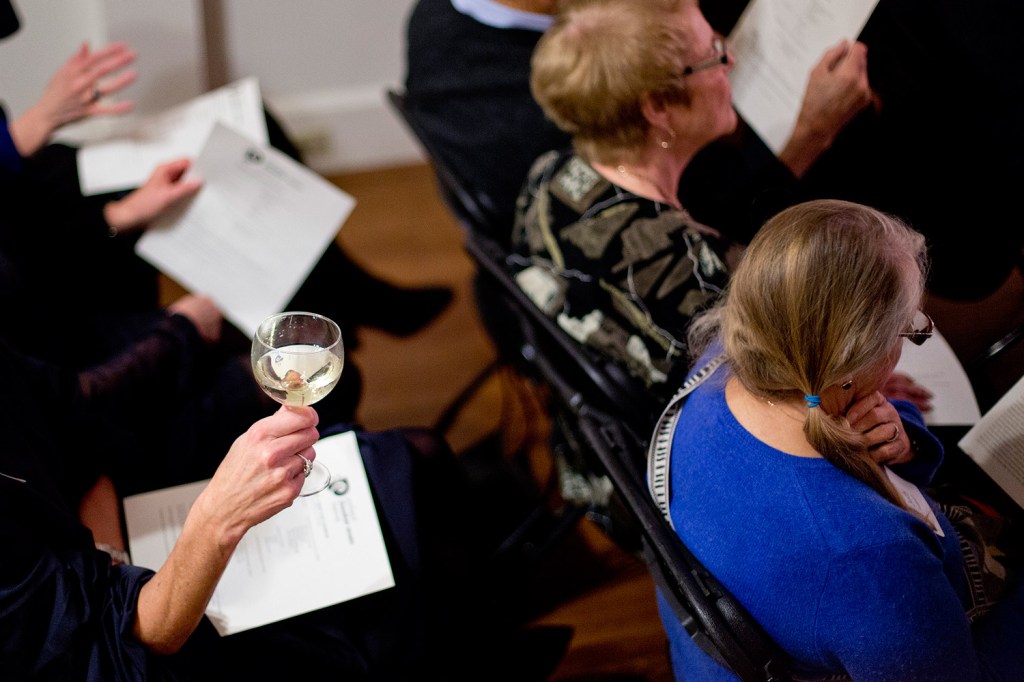
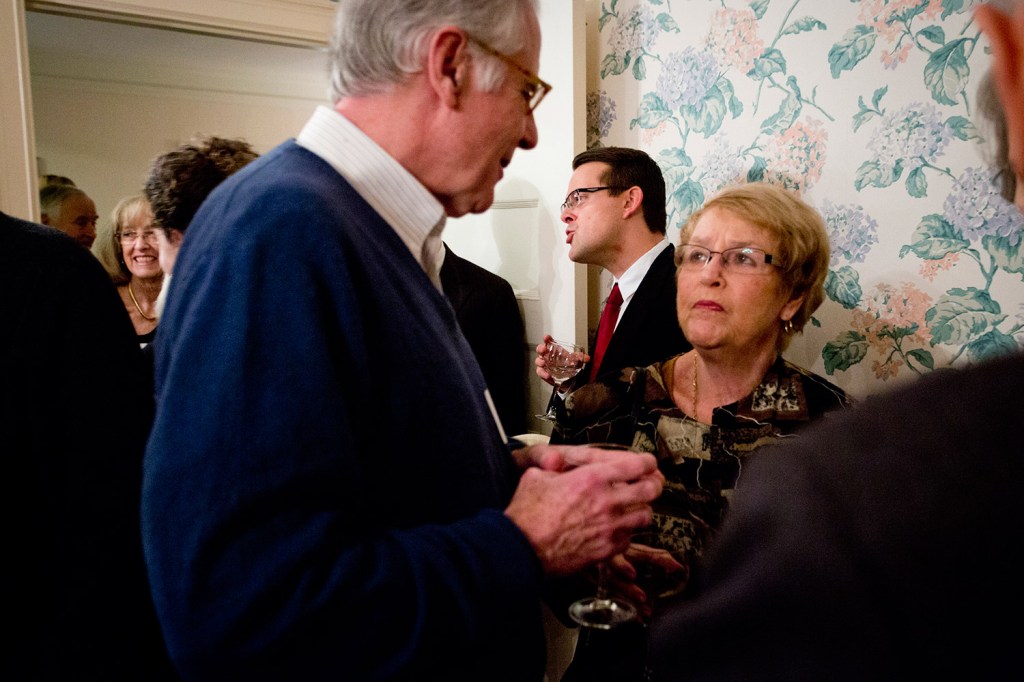
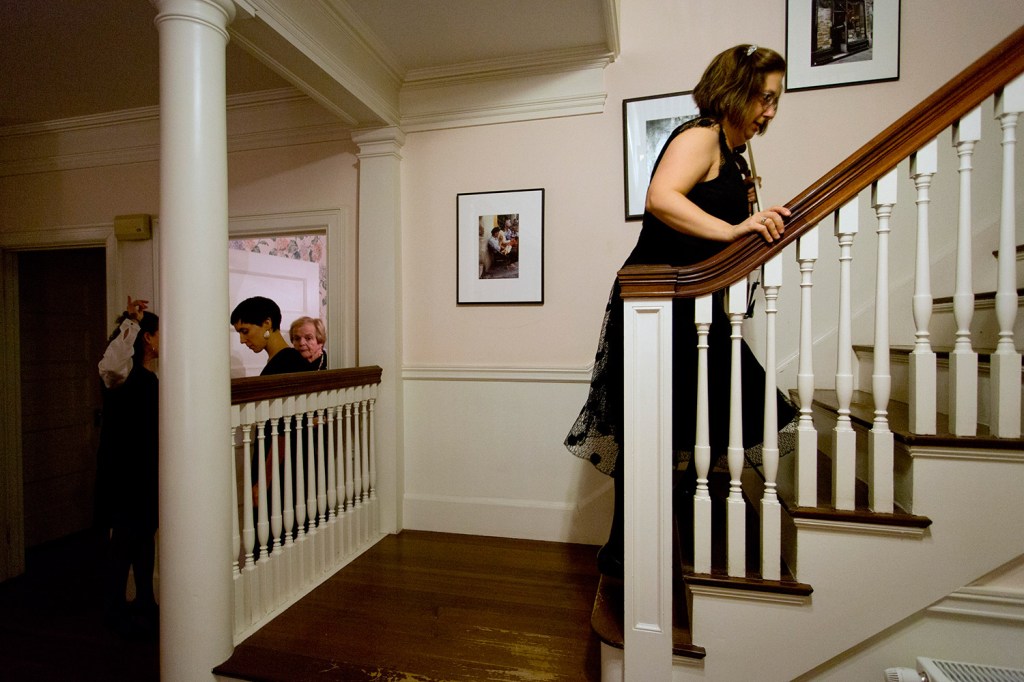
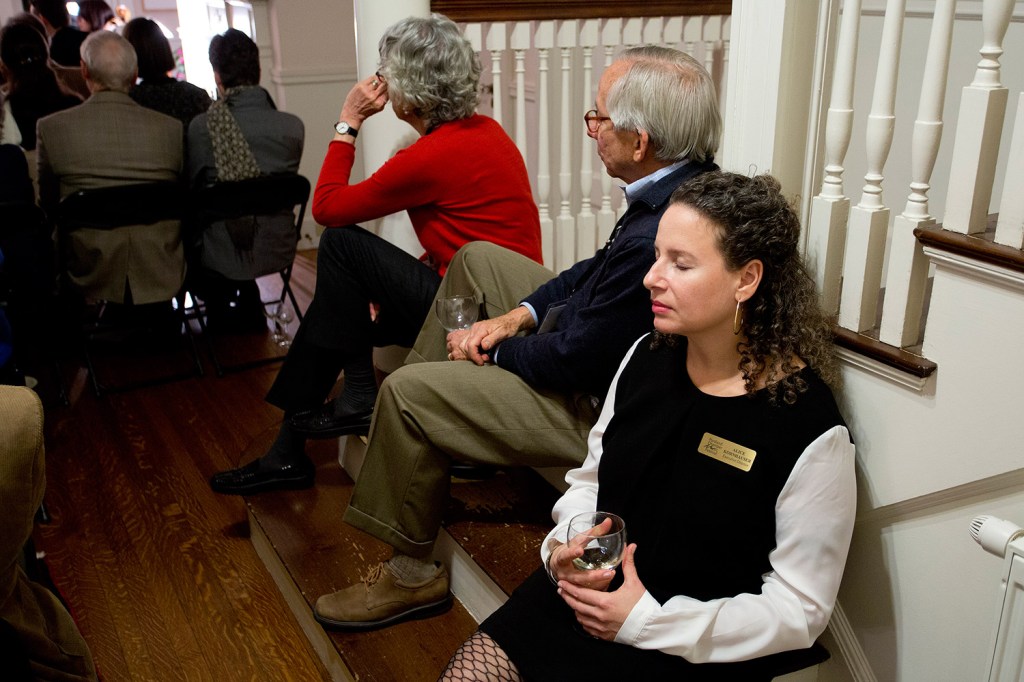

Success. Please wait for the page to reload. If the page does not reload within 5 seconds, please refresh the page.
Enter your email and password to access comments.
Hi, to comment on stories you must . This profile is in addition to your subscription and website login.
Already have a commenting profile? .
Invalid username/password.
Please check your email to confirm and complete your registration.
Only subscribers are eligible to post comments. Please subscribe or login first for digital access. Here’s why.
Use the form below to reset your password. When you've submitted your account email, we will send an email with a reset code.